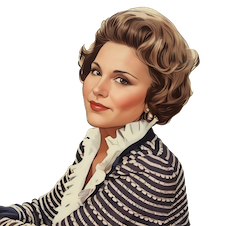Dear Ann Landers, You recently printed a job description for nurses dating from the 19th century. The writer gave the erroneous impression that nursing is a lot easier today than it was then. He is wrong.
After 20 years as a nurse, I've seen tremendous changes in both duties and ethics. Today, nurses must be educated and continue to keep up-to-date on technical advances and procedures. There are discoveries almost daily that affect how illness, wounds and trauma are treated. Nurses must learn how to operate newly invented devices that improve the care of patients.
Today, a nurse must be a facilitator, educator, caregiver, confessor and manager. She must also have intelligence, compassion and intuition. Years ago, the nurse fulfilled the role of what would be a nurse's assistant today. Now, nurses handle more duties so the physician can concentrate on the more complicated situations. We are no longer menial servants, as that century-old job description would indicate, but highly educated, highly skilled medical professionals working to bring the best care to each person who seeks our help.
I do not claim that nurses are one rung down from sainthood, but we're close. -- New Jersey R.N.
Dear R.N.,
Amen, sister.

Be the 1st to Comment
What do you think?